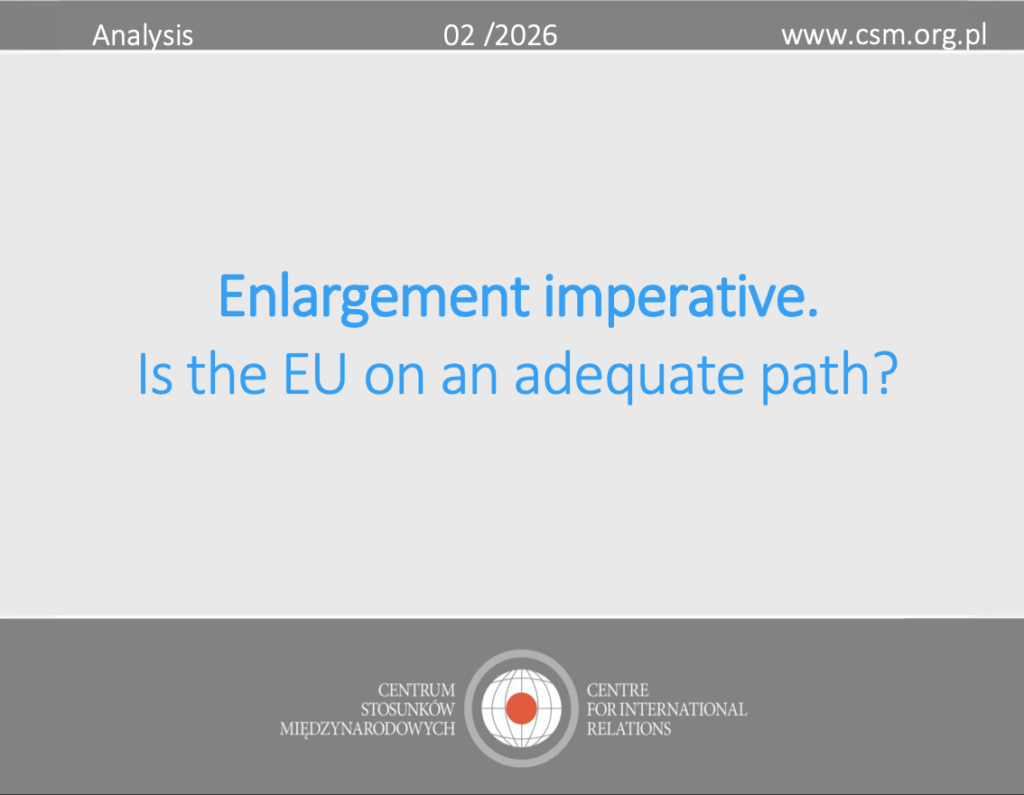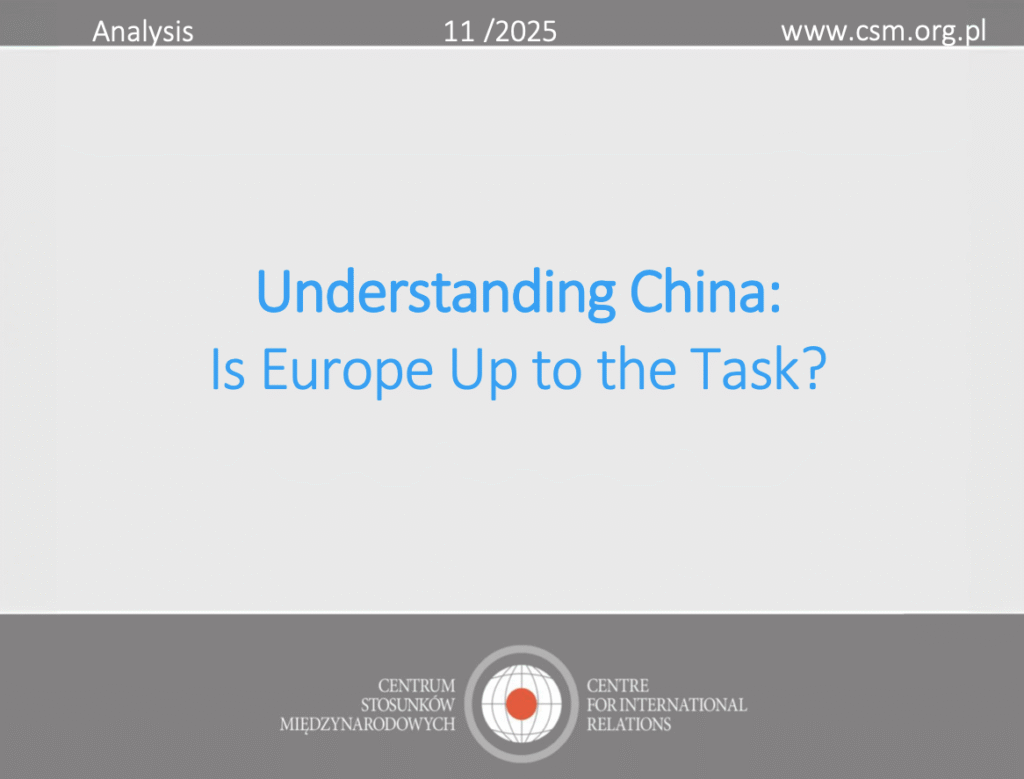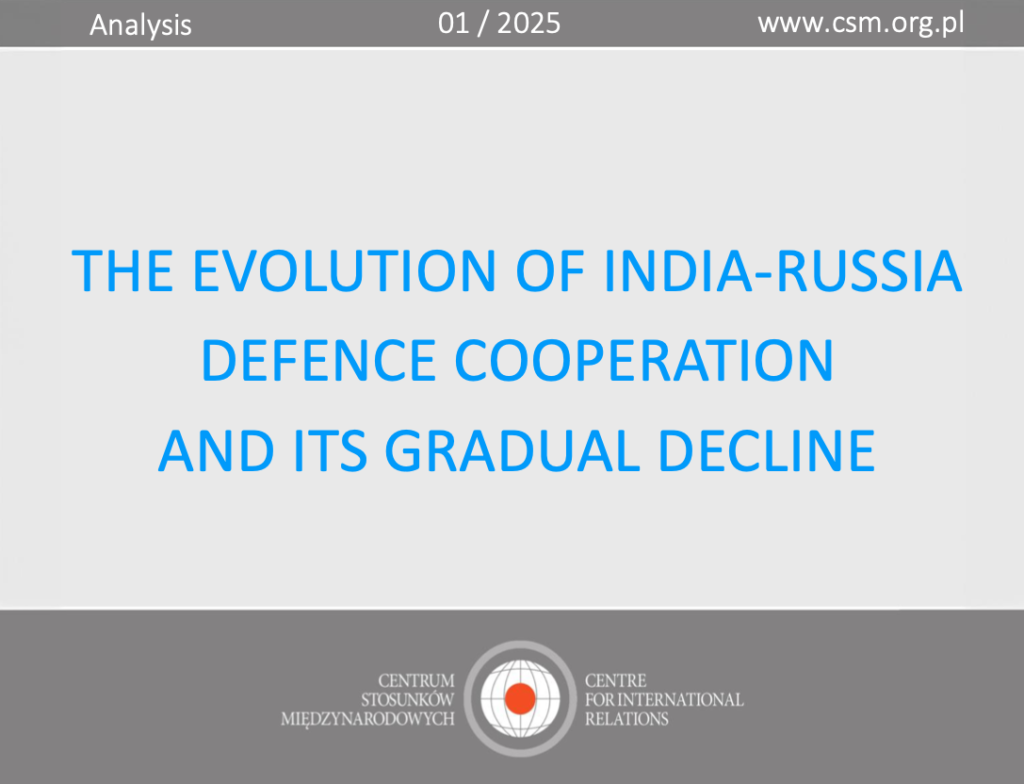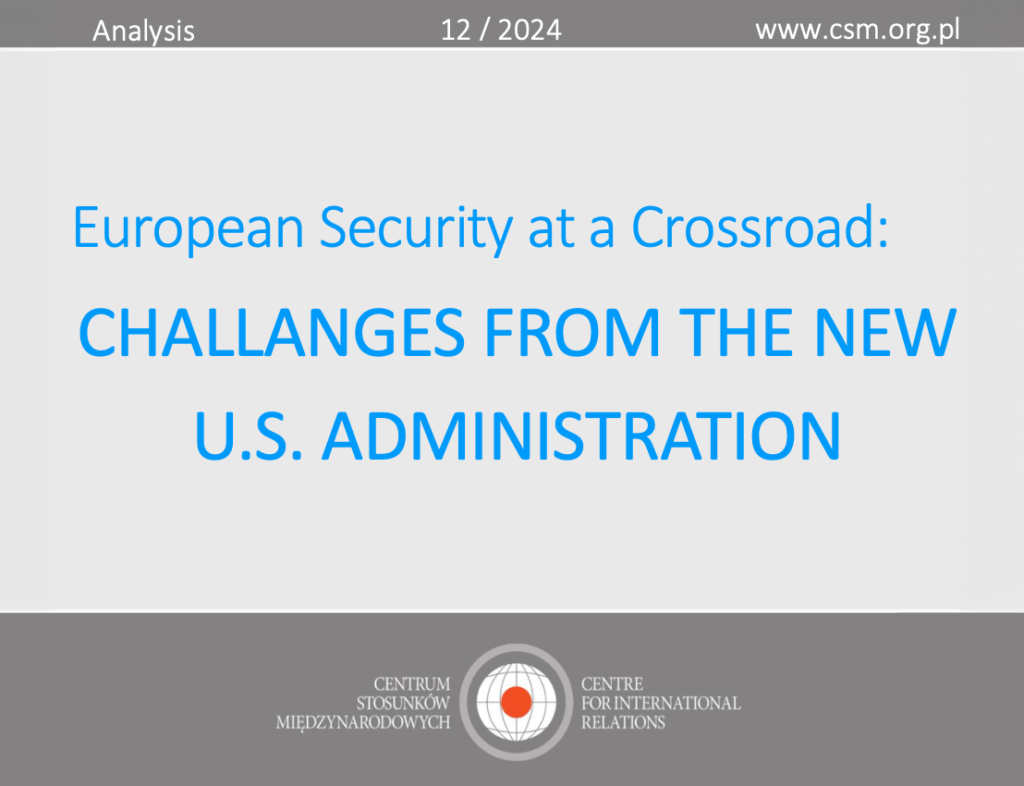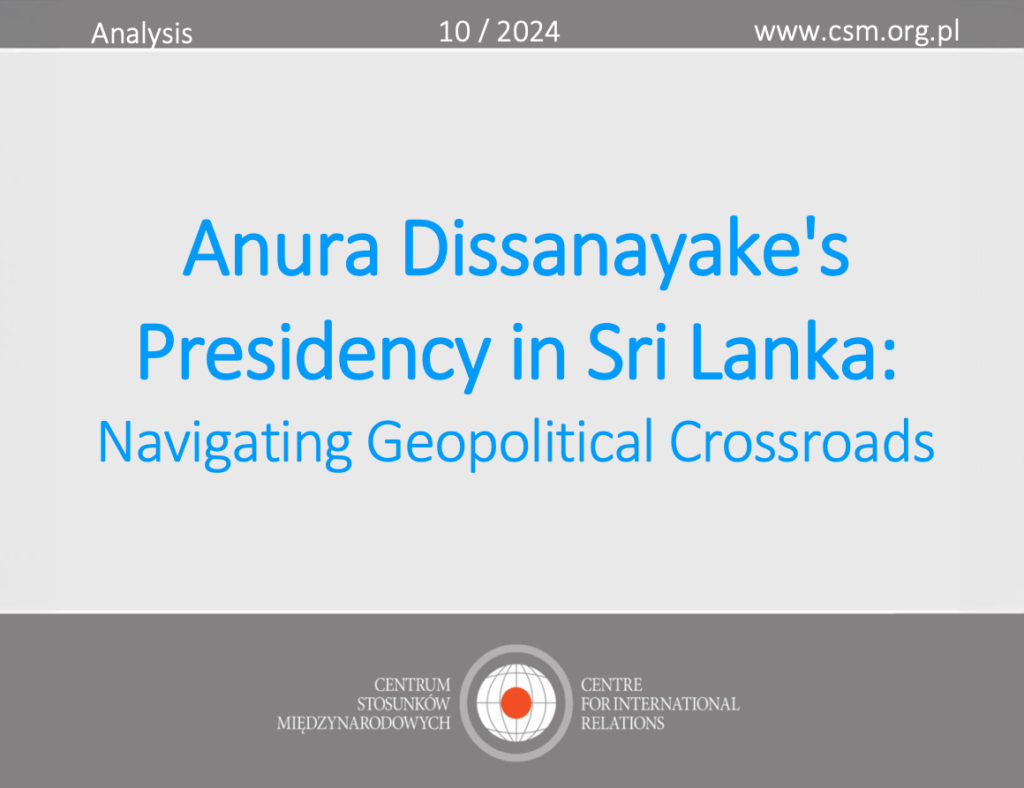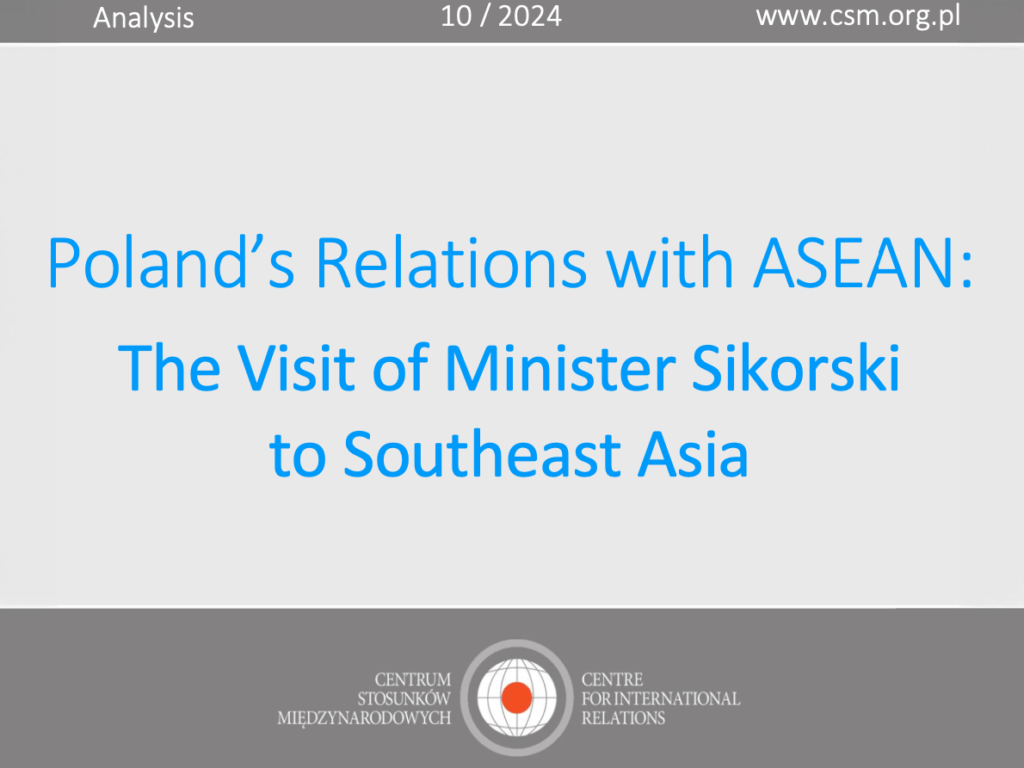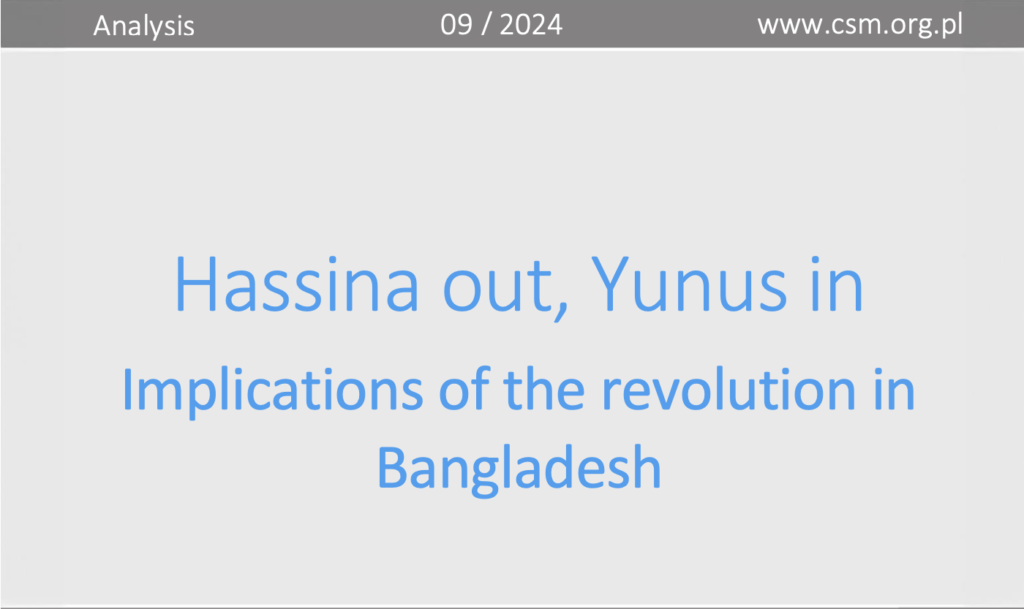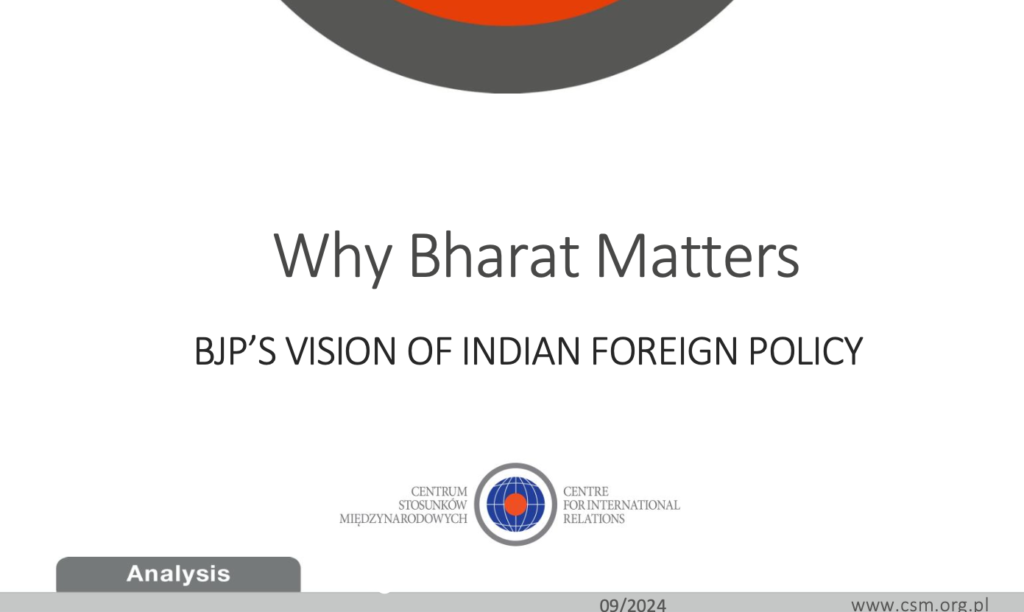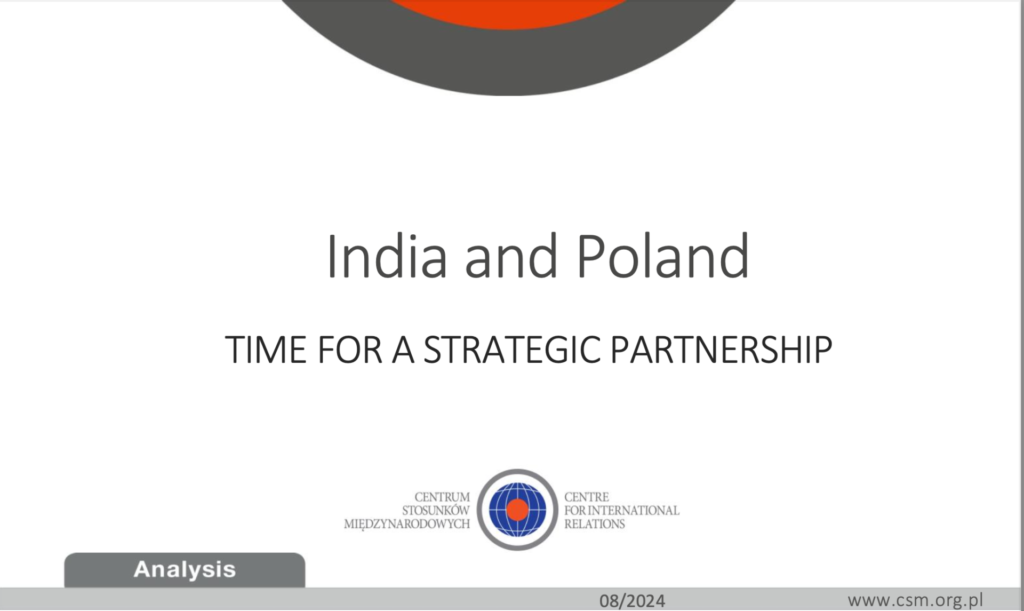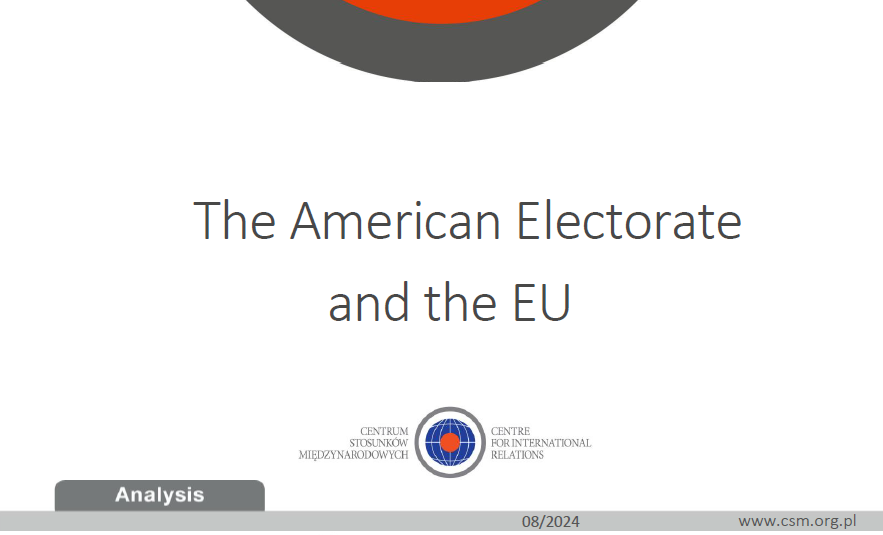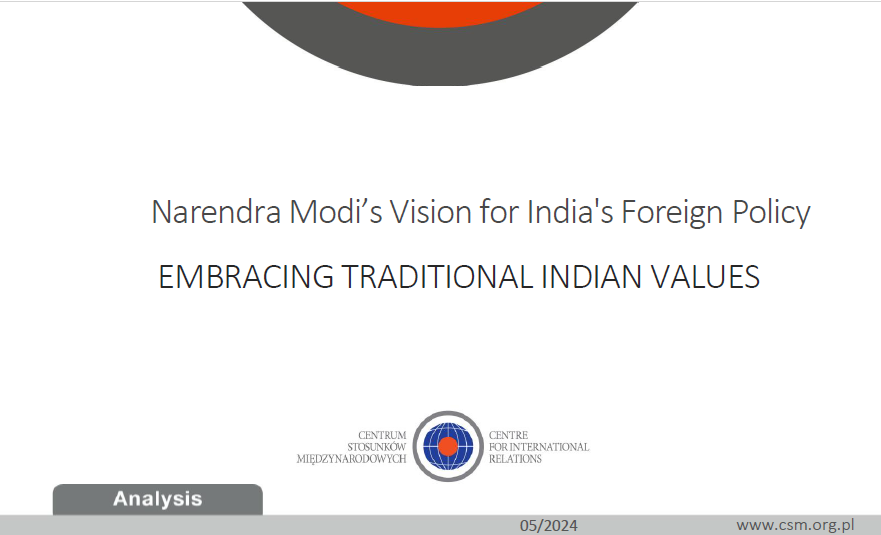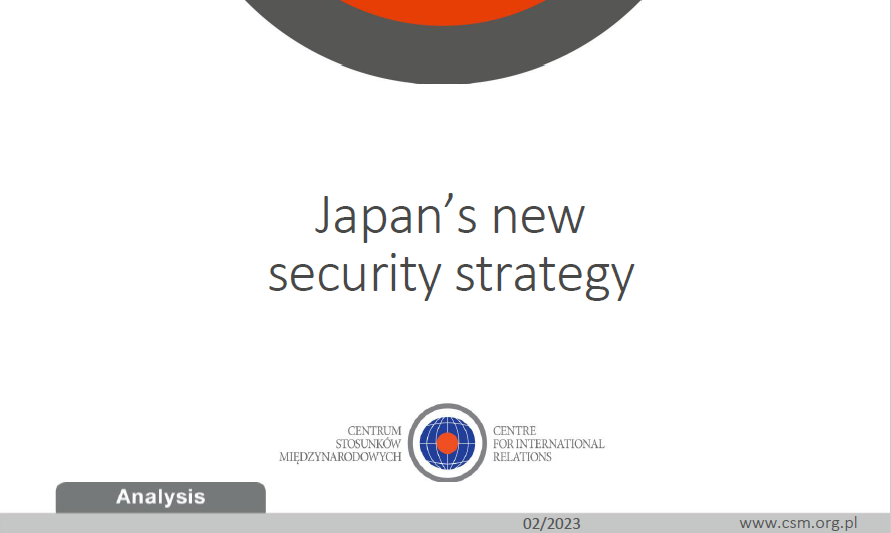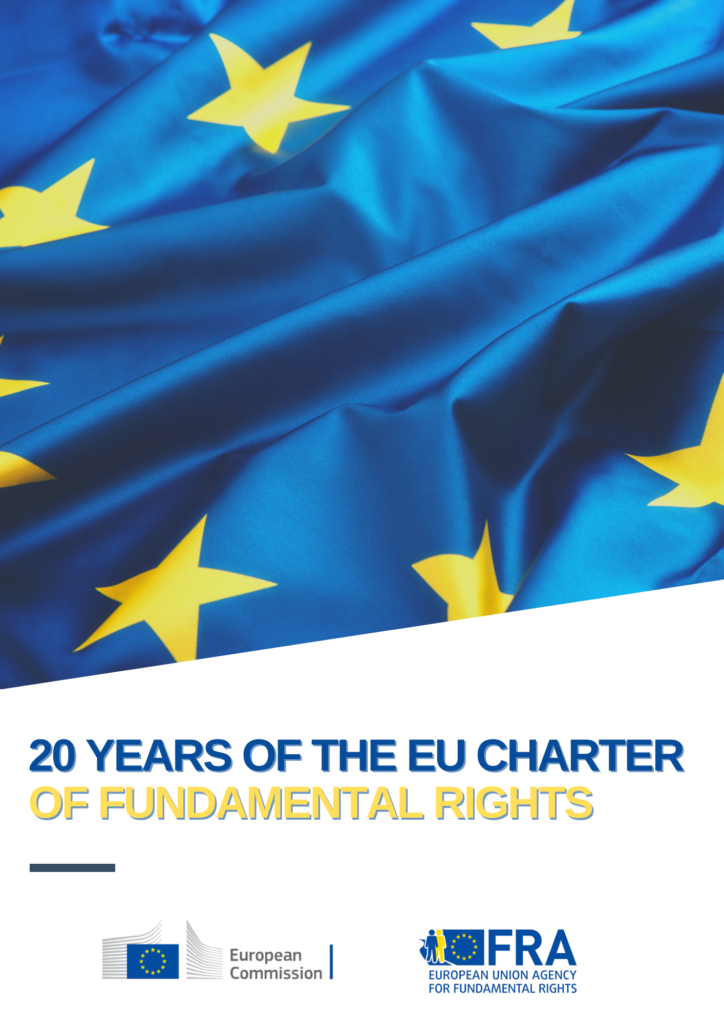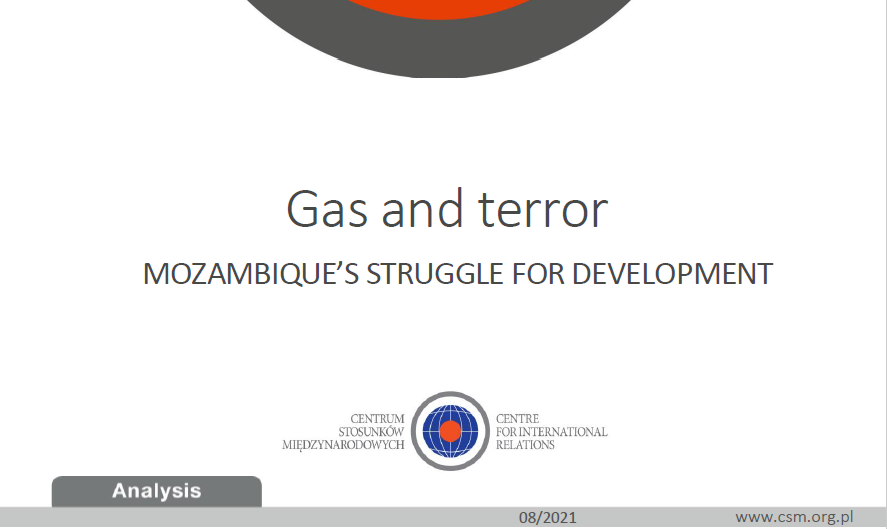Analysis CIR: “Enlargement imperative. Is the EU on an adequate path?”
“The unprecedented environment in which Ukraine has been preparing for EU membership, reminds that the fight for Ukraine’s future goes beyond the battlefield and security guarantees, including its reconstruction and integration with the European Union. This accession is not only about the benefits of membership for Ukraine, it is also...
CIR analysis: “Understanding China: Is Europe Up to the Task?”
“The Fourth Plenum of the Chinese Communist Party’s Central Committee (20–23 October, 2025) did not produce any breakthrough decisions. What it delivered instead was something far less tangible but more revealing: a change in tone. In the official communiqué, the word “security” appears twenty-seven times, while “innovation” is mentioned just three times. The ratio...
CIR analysis: “The evolution of India-Russia defence cooperation and its gradual decline”
The defence relationship between India and Russia has historically been one of the most significant bilateral military partnerships globally. From the 1950s, when the Soviet Union first began supplying military equipment to India, through to the present day, this relationship has undergone numerous transformations. Over the decades, India has transitioned...
European Security at a Crossroad: Challenges from the New U.S. Administration
“As the U.S. reflects on the results of its recent presidential election, Donald Trump’s confirmed return to the White House raises substantial concerns for European security. His presidency from 2017 to 2021 was marked by a transactional approach to foreign policy, creating deep rifts within NATO (North Atlantic Treaty Organisation),...
Anura Dissanayake’s Presidency in Sri Lanka: Navigating Geopolitical Crossroads
“The election of Anura Kumara Dissanayake as the Presi-dent of Sri Lanka on 21 September, 2024, has sparked questions about the country’s future foreign policy. Given his left-wing party’s historical ties to China and cautious stance towards India, both regional powers are closely watching his next moves. This analysis explores...
Poland’s Relations with ASEAN: The Visit of Foreign Minister Sikorski to Southeast Asia
“Poland’s presidency of the EU Council in the first half of 2025 presents new opportunities for strengthening its cooperation with Southeast Asian countries. Poland’s valuable, albeit limited relations with ASEAN members, bolstred by the growing trade exchange between the parties, provides a solid foundation for further expansion of this potential....
CIR Analysis: “Hassina out, Yunus in”
On August 5th, widespread social protests in Dhaka escalated into powerful demonstrations against Prime Minister Sheikh Hasina, who has ruled Bangladesh for 15 years. Facing extreme pressure and fearing for her life, she fled the country for India. Under the leadership of an interim government headed by Professor Mohammad Yunus,...
CIR Analysis: “Why Bharat Matters: BJP’s vision of Indian foreign policy”
During India’s presidency of the G-20 in 2023, Prime Minister Narendra Modi emphasized that India was offering an alternative to the status quo, shifting from GDP-centric to human-centric progress. This approach aims to remind the world of what unites us rather than what divides us. This is the core of...
CIR Analysis: “India and Poland. Time for a strategic partnership”
2024 will mark the 70th anniversary of establishing diplomatic relations between Poland and India. In recent years, both countries have seen a growing importance in their respective regions, strengthening their positions on the global stage. However, in opening up to Asia, Poland has primarily focused on China, while India, for...
CIR Analysis: „The American Electorate and the EU”
Since forming the European Economic Community (EEC), the US and the EU have enjoyed a stable– if not good, relationship. Both the EU and the US have seen in each other a stable economic and defense partnership with NATO and positive trade relations. Transatlantic trade alone has reached an all-time...
CIR Analysis: “India after 2024 elections”
This year’s general elections in India ended with a surprising result. Although Prime Minister Narendra Modi’s ruling Indian People’s Party (BJP) has retained power, the lack of a majority in parliament (Lok Sabha) makes it dependent on its coalition partners. At the same time, the opposition, including the Indian National...
CIR Analysis “Narendra Modi’s Vision for India’s Foreign Policy”
As India holds its 2024 general elections, Bharatiya Janata Party (BJP) aims for a significant victory with their campaign slogan “This Time for 400.” Prime Minister Narendra Modi’s popularity spans across diverse social groups, enhancing BJP’s appeal. Interestingly, Minister of External Affairs Dr. S. Jaishankar’s book “Why Bharat Matters?” uses...
CIR analysis: “United States: Indispensable Nation – Unavoidable Problem (for Europe)”
In an era where geopolitical dynamics are rapidly evolving, the United States’ new industry and trade policies under President Biden, often dubbed ‘Bidenomics’, present both challenges and opportunities for Europe. With massive federal investments and a focus on green re-industrialization, these policies are set to significantly impact the global trade...
CIR analysis: “Japan’s new security strategy”
The new Security Strategy of Japan can be interpreted as a turning point in the defense policy of the country, as it allows for a counterattack on the aggressor’s territory. However, this document was written at a particular time: there is a war ongoing between Russia and Ukraine, tensions in...
CIR analysis: “Iran between East and West”
Russian invasion of Ukraine has shaken not just Europe but also has changed the global geopolitics and energy supply chains around the globe. Its impact has been clearly felt also in the Middle East as the European nations struggle to find new energy providers. Iran could benefit from that tectonic...
20 years of the EU Charter of Fundamental Rights
Dignity, freedoms, equality, solidarity, citizens’ rights, justice. These are the most important personal rights that belong to everyone in the European Union. They are brought together in one legally binding document: the EU Charter of Fundamental Rights. It was declared in 2000 and came into force in December 2009 along...
CIR analysis: “Georgia. Between Russia and the West”
26 May Georgia celebrates its Independence Day. The country stands out from its neighbours thanks to its democratic credentials. Yet in recent years, the South Caucasian country of 3.7 million people has been plagued by political and economic tensions, exacerbated by the Covid-19 pandemic and the aftermath of the parliamentary...
Analyses CSM: “A whip against violent dissidence”
For almost 30 years of existence, the International Criminal Court (ICC) has tried more than a dozen defendants, possible, which 8 were found guilty – writes prof. Klaus Bachmann, a collaborator of CSM, professor of political science at the University of Social Sciences and Humanities, member of the Stefan Batory...
Analyses CSM: “The Visegrad Four’s Migration Dilemma”
Many leading politicians of the Visegrad Group countries, which include Poland, Slovakia, the Czech Republic and Hungary, are openly and strongly opposed to the admission of migrants. One of the key arguments is to defend national identity against foreign and Western multiculturalism, ” writes Robert Steenland, associate and analyst at...
CIR analysis: “Gas and terror. Mozambique’s struggle for development”
Mozambique is a south-east African country with a population of 30 million, rich in natural resources and conveniently located along the western Indian Ocean. Its vast gas reserves have potential to accelerate its growth. Al-Shabab insurgency, however has delayed the prospects for development for several years now. The nation struggling...



